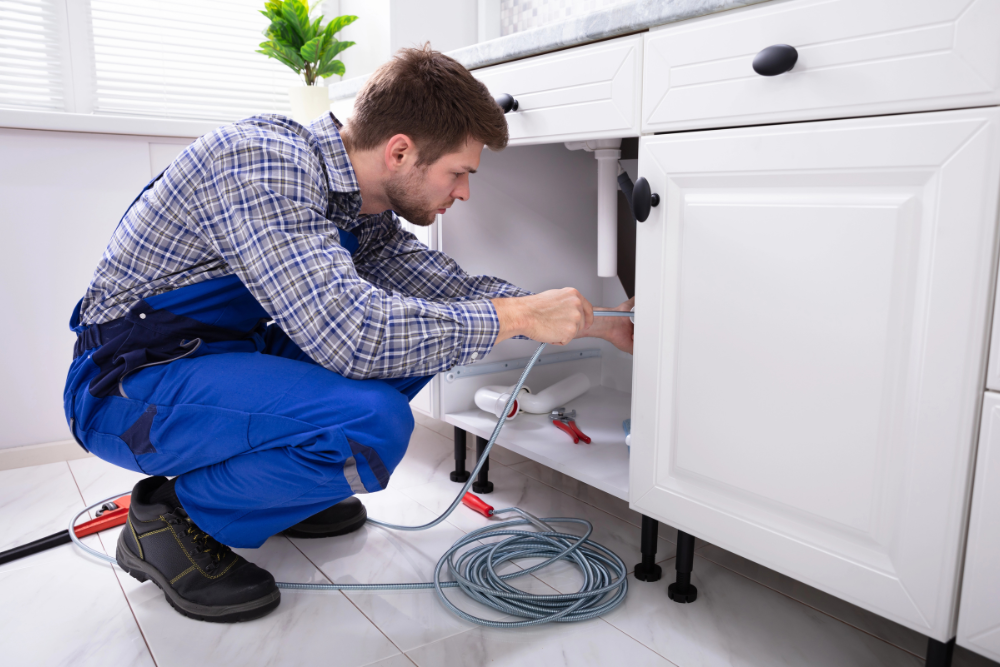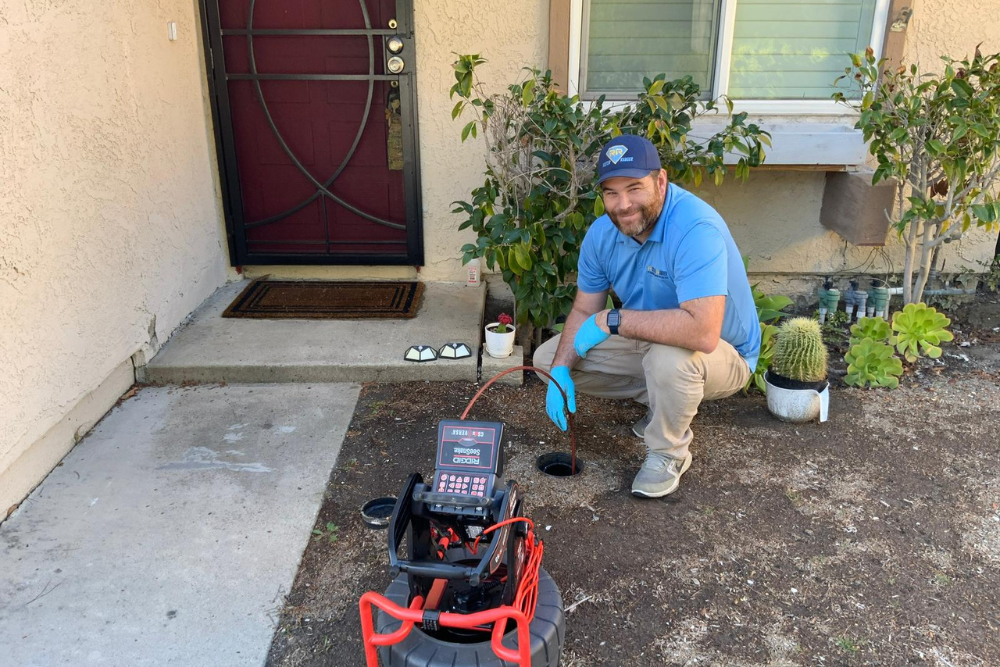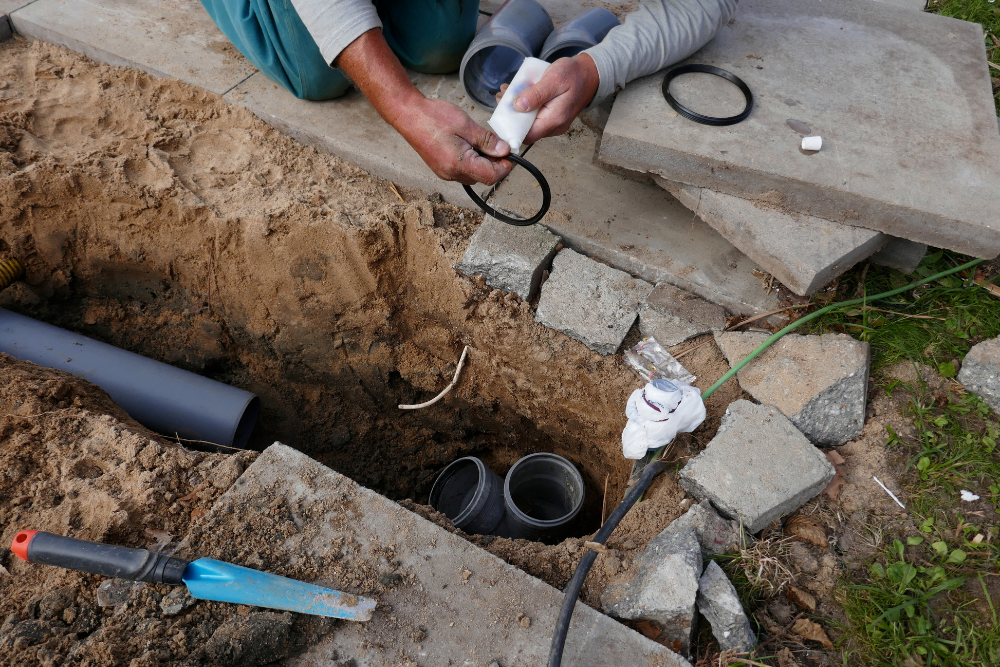Blog
How Often Should You Have Your Main Sewer Line Cleaned?

Maintaining a healthy home involves more than just cleaning what lies above the surface. One often overlooked yet crucial aspect of yearly cleaning is sewer maintenance. A well-functioning sewer system ensures proper waste disposal, maintains a hygienic living environment, and prevents potential plumbing disasters.
But how often should you have your sewer line cleaned to avoid unexpected repairs? Learn the best practices for keeping your main sewer clean and durable, and the signs that it needs maintenance.
How Often Is Enough?
Routine sewer line cleaning is essential, but the frequency depends on various factors: family size, condition of the plumbing system, and age of your house.
An average-sized household (one kitchen and two bathrooms) only needs cleaning about once annually. However, homes with large families or older plumbing systems may need bi-annual cleaning. Additionally, homes with a history of tree root intrusion might require more frequent inspections and cleanings.
Signs Your Sewer Needs Cleaning
Recognizing when your sewer line requires cleaning is pivotal. Look out for warning signs, like:
- Slow drains
- Foul odors
- Gurgling sounds
- Wet spots in the yard
- Blocked cleanout drain
If you notice any of these signs, schedule a professional plumbing inspection immediately to find the root cause and prevent potential blockages and backups.
The Benefits of Regular Sewer Line Maintenance
Regular sewer line cleanings offer numerous benefits. Here’s a closer look at some of the key advantages:
- Prevents Clogs: Routine cleanings help remove build-up and blockages, ensuring your sewer lines remain clear.
- Extends Plumbing Lifespan: Keeping your sewer system clean can prolong the life of your pipes and fixtures.
- Avoids Costly Repairs: Addressing minor issues early on can prevent major repairs and expensive emergency services.
- Improves Home Hygiene: A well-maintained sewer system helps maintain a sanitary living environment, free from unpleasant odors and potential health hazards.
- Reduces Risk of Sewage Spills: Regular sewer line maintenance also has environmental benefits. By preventing leaks and blockages, you reduce the risk of sewage spills and contamination of local water sources.
DIY vs. Professional Sewer Cleaning: Which Is Better?
Some homeowners may be tempted to attempt DIY sewer line cleaning to save money. While DIY methods can address minor clogs, they often fall short of providing a thorough and lasting solution.
Homeowners typically use basic tools like plungers, drain snakes, or chemical cleaners, which may offer temporary relief but fail to tackle deeper or more persistent blockages. Most importantly, improper use of these tools can potentially damage the pipes and lead to more costly repairs.
Certified plumbers, on the other hand, have the expertise and specialized equipment necessary to perform comprehensive sewer line cleaning. They use advanced tools such as video cameras to conduct detailed inspections inside the pipes, identifying blockages, cracks, or other issues that DIY methods might miss.
Additionally, professional plumbers employ high-pressure hydro jet equipment to clear out debris, tree roots, and grease buildup. Hydro jetting not only removes current obstructions but also thoroughly cleans the interior walls of the pipes, preventing future clogs.
Professional cleaning ensures more effective and longer-lasting results by addressing the root causes of blockages and maintaining the overall health of your plumbing system. Certified plumbers also offer preventive maintenance advice and services, helping homeowners avoid potential plumbing disasters down the line.
Additional Sewer Line Maintenance Tips
In addition to regular cleanings, there are several proactive steps you can take to ensure your sewer system remains in optimal condition. Here are some additional sewer line maintenance tips to help keep your plumbing running smoothly:
- Avoid Flushing Non-Flushables: Items like wipes, hygiene products, and grease should never be flushed down the toilet.
- Use Enzyme Cleaners: Regularly use enzyme-based drain cleaners to break down organic material in your pipes.
- Install a Backflow Valve: A backflow preventer will prevent sewage from backing up into your home during heavy rain or flooding events.
- Regular Inspections: Schedule routine plumbing inspections to catch potential issues early.
Call Rooter Ranger for Professional Sewer Line Cleaning!
Don’t wait for problems to arise. Schedule a sewer cleaning with Rooter Ranger to keep your sewer lines in optimal condition. Our plumbers deliver prompt and efficient service whenever you need us. We’ll remove tree roots, raw sewage, and other debris to clean the sewer lines and ensure free-flowing drainage.
Investing in professional sewer line cleaning not only provides peace of mind but also extends the lifespan of your plumbing system, ultimately saving your wallet in the long run.
Contact us today to schedule an appointment!





